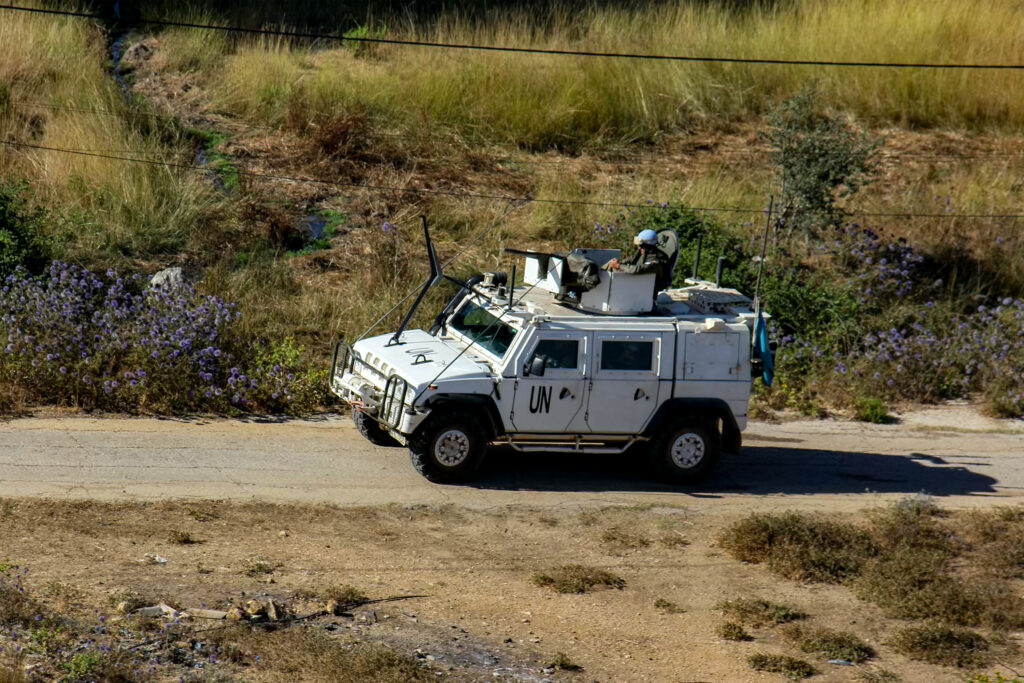An expected United Nations Security Council vote on the future of the blue helmet peacekeeping mission in south Lebanon, which has faced US and Israeli opposition, was pushed back on Monday as negotiations continued.The Council is debating a French-drafted compromise that would keep the United Nations Interim Force in Lebanon (UNIFIL), deployed in 1978 to separate Israel and Lebanon, in place for one more year while it prepares to withdraw.Talks began last week and it had been thought a vote could come as soon as Monday, but diplomatic sources indicated that a vote would now come by the end of the week. The force’s mandate ends Sunday.In the latest draft text seen by AFP, the Council would signal “its intention to work on a withdrawal of UNIFIL with the aim of making the Lebanese Government the sole provider of security in southern Lebanon.”Under a truce that ended a recent war between Israel and Iran-backed Hezbollah, Beirut’s army has been deploying in south Lebanon and dismantling the militant group’s infrastructure there.Lebanon has been grappling with the thorny issue of disarming Hezbollah, with the cabinet this month tasking the army with developing a plan to do so by the end of the year. The Iran-backed militant group has pushed back.Under the truce, Israel was meant to completely withdraw from Lebanon, though it has kept forces in several areas it deems strategic and continues to conduct strikes across Lebanon. The resolution would extend until August 31, 2026 the mandate of the 10,800-strong force made up of Indonesian, Indian, Italian, Ghanaian, Nepalese and other nationalities.It was not clear if Washington, which wields a veto on the Security Council, would accept the compromise language, with a State Department spokesman previously telling AFP it would not comment on Council deliberations.The text also contained language “condemning the incidents that affected United Nations Interim Force in Lebanon premises and forces, injuring several peacekeepers” — a reference to strikes by US ally Israel on UNIFIL positions that have caused injuries and damage. Israel was not specifically named.Ahead of the vote, a senior UN official warned that “to completely eliminate (UNIFIL’s) capacity at this point, or very quickly, would not serve anybody in the region,” calling any abrupt withdrawal risky.The official said UNIFIL had facilitated the deployment of 8,300 Lebanese armed forces troops to 120 locations, assisting with logistics, funds and even fuel as well as training support.UN spokesman Stephane Dujarric last week called the force’s support of Lebanon’s army “critical,” adding “we have always felt and known that UNIFIL is a presence of stability along the blue line.”
An expected United Nations Security Council vote on the future of the blue helmet peacekeeping mission in south Lebanon, which has faced US and Israeli opposition, was pushed back on Monday as negotiations continued.The Council is debating a French-drafted compromise that would keep the United Nations Interim Force in Lebanon (UNIFIL), deployed in 1978 to separate Israel and Lebanon, in place for one more year while it prepares to withdraw.Talks began last week and it had been thought a vote could come as soon as Monday, but diplomatic sources indicated that a vote would now come by the end of the week. The force’s mandate ends Sunday.In the latest draft text seen by AFP, the Council would signal “its intention to work on a withdrawal of UNIFIL with the aim of making the Lebanese Government the sole provider of security in southern Lebanon.”Under a truce that ended a recent war between Israel and Iran-backed Hezbollah, Beirut’s army has been deploying in south Lebanon and dismantling the militant group’s infrastructure there.Lebanon has been grappling with the thorny issue of disarming Hezbollah, with the cabinet this month tasking the army with developing a plan to do so by the end of the year. The Iran-backed militant group has pushed back.Under the truce, Israel was meant to completely withdraw from Lebanon, though it has kept forces in several areas it deems strategic and continues to conduct strikes across Lebanon. The resolution would extend until August 31, 2026 the mandate of the 10,800-strong force made up of Indonesian, Indian, Italian, Ghanaian, Nepalese and other nationalities.It was not clear if Washington, which wields a veto on the Security Council, would accept the compromise language, with a State Department spokesman previously telling AFP it would not comment on Council deliberations.The text also contained language “condemning the incidents that affected United Nations Interim Force in Lebanon premises and forces, injuring several peacekeepers” — a reference to strikes by US ally Israel on UNIFIL positions that have caused injuries and damage. Israel was not specifically named.Ahead of the vote, a senior UN official warned that “to completely eliminate (UNIFIL’s) capacity at this point, or very quickly, would not serve anybody in the region,” calling any abrupt withdrawal risky.The official said UNIFIL had facilitated the deployment of 8,300 Lebanese armed forces troops to 120 locations, assisting with logistics, funds and even fuel as well as training support.UN spokesman Stephane Dujarric last week called the force’s support of Lebanon’s army “critical,” adding “we have always felt and known that UNIFIL is a presence of stability along the blue line.”
